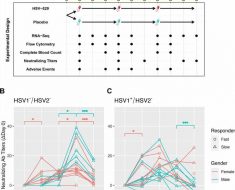
A major new survey of trust and mistrust in the UK has revealed worryingly high levels of mistrust in society, with a quarter of respondents mistrustful of other people and a similar proportion keen for help to feel more trusting.
Researchers from the University of Oxford surveyed a representative group of 10,382 UK adults. It was the most comprehensive survey of paranoia—defined as excessive mistrust of other people –carried out to date. The paper, “Explaining paranoia: cognitive and social processes in the occurrence of extreme mistrust,” is published in the journal BMJ Mental Health.
Analysis of the survey items showed that 13.7% of participants described themselves as very trusting of other people, 61.4% as generally trusting, 19.6% as generally mistrustful, and 5.3 as very mistrustful. Some 6% reported that they were often more fearful of what other people may do to them than they should be, 14.5% sometimes felt this, 20.8% occasionally felt this, and 57.9% did not feel this. And 17% wanted help to be more trusting of other people, 38.7% might want help, and 44.4% did not want help.
Approximately one in five people had regular suspicious thoughts and 5–8% experienced very strong paranoia. For example, 27% said they somewhat or totally believed that someone wanted to hurt them; 27% that there was a conspiracy against them; and 30% that it was difficult to stop thinking about people wanting to make them feel bad.
Professor Daniel Freeman, study lead, Department of Experimental Psychology, University of Oxford, said, “The survey suggests that a crisis of trust may be developing in the UK. A significant minority of the participants in our study reported mistrusting other people. Not only that, but these individuals also said that they were more mistrustful than they should be and wanted help to rebuild their confidence in other people.”
“So, our survey participants understood that the threats they perceived were exaggerated. They knew they might be misjudging others. Mistrust makes the world seem a much more stressful, frightening place. It’s no surprise then that so many people are keen to repair their sense of trust.”
The research also investigated the possible causes of this widespread mistrust, finding that discrimination was highly influential.
Professor Freeman says, “Paranoia is usually the result of a combination of causes. Indeed, our survey found contributions from more than a dozen social and psychological factors. One of the most significant was discrimination. Paranoia typically arises from a sense of vulnerability—a worry that we will be targeted by people much more powerful than ourselves.”
“If we’ve been mistreated in the past, it’s natural that we might fear mistreatment in the future. Our survey found that mistrust was fueled by a variety of forms of discrimination, including unfair treatment because of skin color or ethnicity, age, sex and sexuality, mental and physical health, and religious beliefs. Feelings of vulnerability can also be triggered by experiences such as bullying and childhood mistreatment (being physically or verbally abused by an adult, for instance) and sure enough, we saw this in the survey data too.”
Alongside social causes, the survey found that several psychological factors were involved in triggering and maintaining mistrust. The most influential was the use of protective strategies such as limiting time in social situations, watching out for danger, and trying to be inconspicuous. Acting as if the world is unsafe prevents us from learning that the world is safe.
Also important were negative thoughts about the self (“I am weak,” “I am worthless,” “I am unloved,” for example) and negative images (such as people laughing or physically harming the person). Like discrimination, these thoughts and images reinforce a sense of vulnerability. Mistrust was more common in younger people. Indeed, age was the strongest sociodemographic factor found in the survey.
The survey was conducted between 15 and 23 March 2023 with 10,382 UK adults, quota sampled to match the population for age, gender, ethnicity, income, and region.
More information:
Daniel Freeman et al, Explaining paranoia: cognitive and social processes in the occurrence of extreme mistrust, BMJ Mental Health (2023). DOI: 10.1136/bmjment-2023-300880
Journal information:
BMJ Mental Health
Source: Read Full Article





